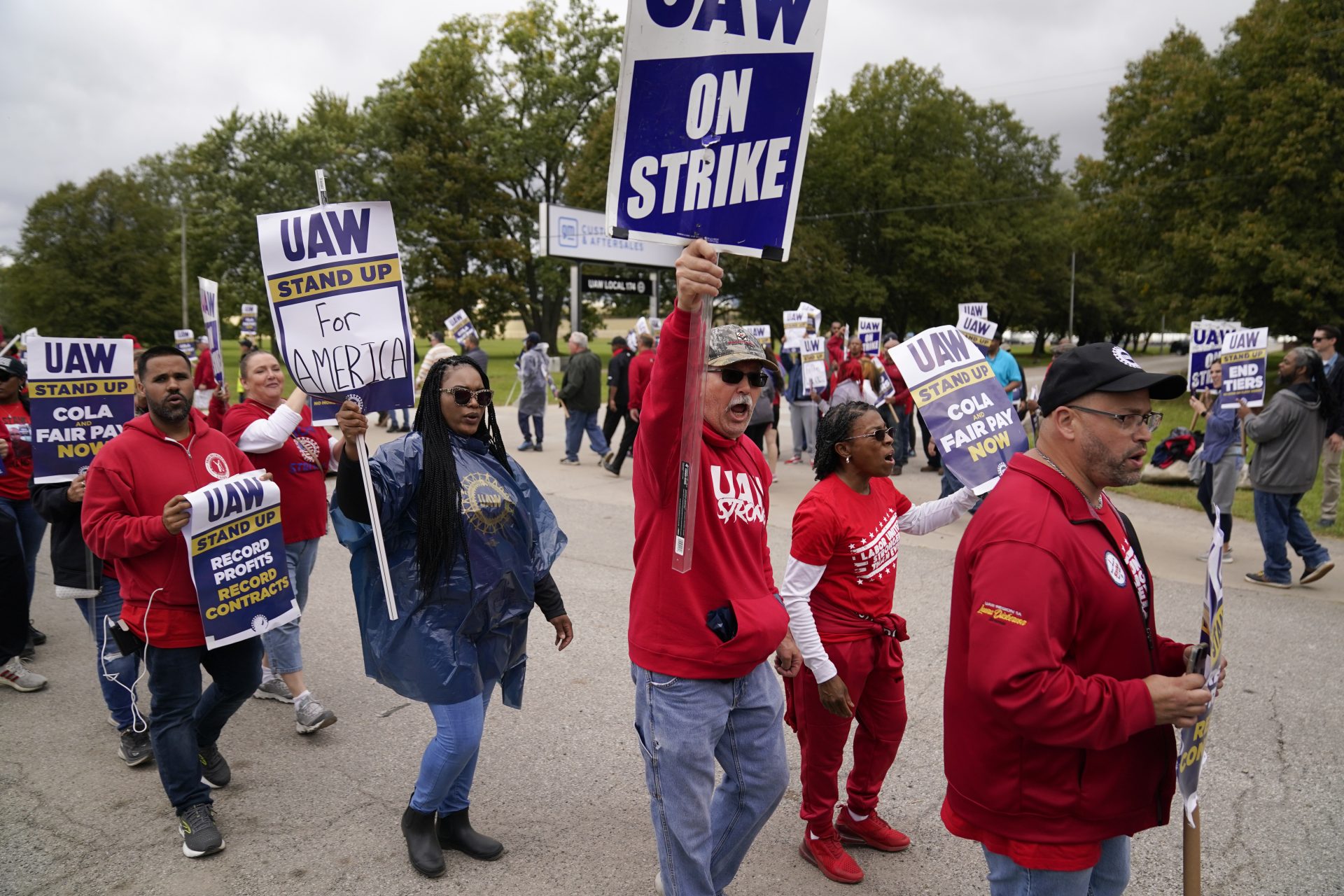|
Only have a minute? Listen instead
Getting your Trinity Audio player ready...
|
Could a prolonged autoworkers’ strike mean a sad holiday season for many Rio Grande Valley residents who rely on trade and the flow of auto parts from maquiladoras?
With the work stoppage entering its second month, the possibility is growing that some workers on both sides of the border might not have the kind of Christmas they had hoped, or expected. Little progress is seen in the four-week-old strike, with Mack Trucks workers walking out Monday and those at Ford’s Kentucky plant stopping Thursday.
Members of the United Auto Workers union went on strike Sept. 15 against U.S. automakers Ford, GM and Stellantis, which makes Chrysler, Dodge and other car lines.

The companies initially predicted that the effect on total auto production and the demand for supplies would be minimal, and ramped up production at their plants south of the border to make up the U.S. shortfall. Mexican auto workers have their own unions and their own collective bargaining agreements.
However, workers have staged solidarity strikes at some Mexican auto factories and parts makers, including Jaropamex. Moreover, U.S. work stoppages have decreased demand for auto parts made in Mexico, which is the largest source of parts for U.S.-built vehicles.
The Mexico Business News website predicts that an extended strike could cost Mexico’s auto industry up to $2 billion a month, and Mexico’s national automotive parts industry reported a drop in production of more than $400 million in the first few weeks of the stoppage.
In response to the COVID-19 pandemic, many companies built up larger inventory reserves as contingency measures. Tapping into those supplies could further reduce the need for real-time production at some factories.
Parts makers in the country already have started issuing layoffs and furloughs, or “involuntary vacations.”
Many of those companies are maquiladoras along the South Texas border that build parts such as car radios and windshield wiper blades. Almost 300 maquilas operate in Tamaulipas, including more than 120 in Matamoros and 150 in Reynosa, employing nearly 100,000 workers from both sides of the border.
Those workers’ loss of income will ripple throughout the Valley economy. Laid-off workers will have less money to spend at local stores — a bad prospect as the holiday shopping season nears.
Border workers likely aren’t the only people affected. Furloughed people in the interior might be forced to forgo traditional holiday vacations to the north, including South Padre Island and other Valley venues.
The effects of the strike likely won’t end when workers return to the lines. A settlement likely will increase new vehicle prices to pay for the higher workers’ compensation packages, and could lead many people to hang on to their existing vehicles a bit longer, further reducing the demand for new cars and trucks, and the parts that go into them.
Detroit might be 1,000 miles away, but the auto workers’ strike has a direct impact on many Valley residents and the economy they fuel. For their benefit — and for the good of the entire region — let us hope a resolution is reached soon.




